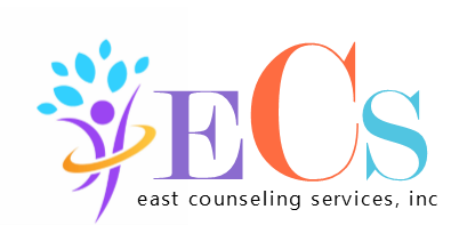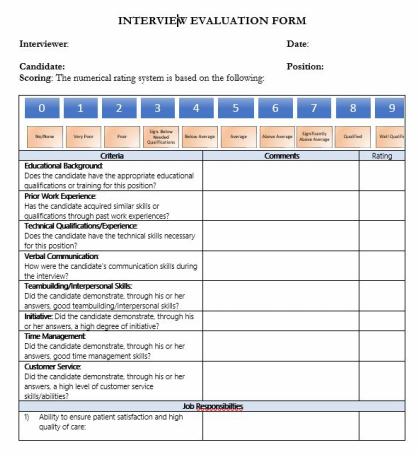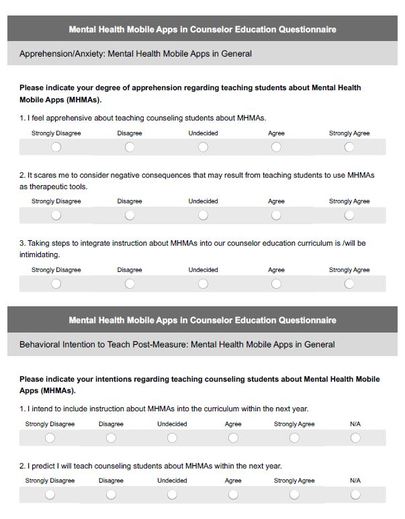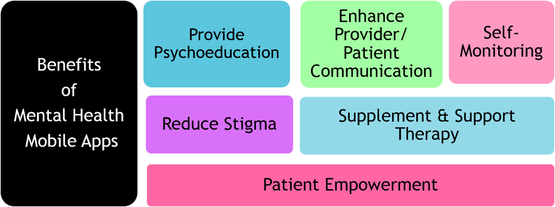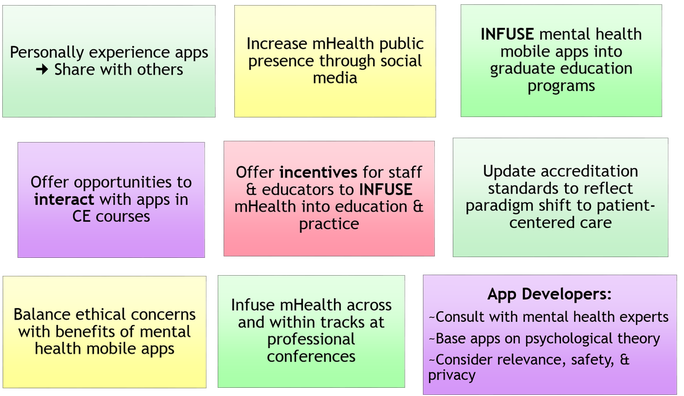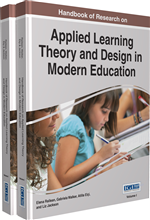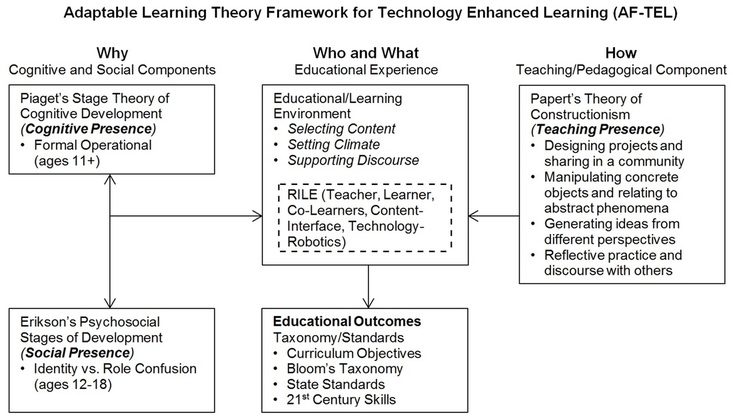Consulting Portfolio
INSTRUCTIONAL DESIGN & PRESENTATIONS
Powtoon Presentation Samples
This presentation was created by Dr. East for presentation at the 2015 Association for Educational Communication & Technology convention. The presentation was created in PowToon and the audio was created in Audacity. The PowToon was saved as a .mp4 file and uploaded to YouTube for sharing.
The Counseling Process is a short animated video created with Powtoon by Dr. East for East Counseling Services website. Audio was created with Audacity.
Prezi Presentation Samples
If viewing on a mobile device, please download the Prezi Viewer app.
|
Mental Health Mobile Applications in Counselor Education: You may view either by starting the play button in the embedded Prezi or by clicking on the button. Note: This presentation has no audio.
|
Dr. East created this Prezi Presentation in November 2015 regarding her dissertation research, Mental Health Mobile Applications in Counselor Education. A PowToon video along with graphics created in PowerPoint were embedded. This Prezi has no audio. Click through the arrows to view slides.
This Prezi was created in Fall 2013 for a course in Distance Learning Implementation in The University of West Florida doctoral specialization, Instructional Technology. The Prezi is shown here as a .pdf file.
The Prezi was presented in a keynote address at a behavioral health intervention technology conference in Austin, Texas by Dr. East.
|
Instructional Design: Screencast Sample
This screencast was created for a web-based course design requirement. It is a screencast comparing two LMS's, Litmos and Talent using a hypothetical course on Parental Alienation.
Instructional Design: Course Module Created in Camtasia
BUSINESS AND EMPLOYMENT CONSULTING
Dr East assists business clients with business and employment needs. In recruitment, for example, Dr. East customizes job descriptions, interview questions, interview evaluation forms, and performance evaluation forms to align with specific jobs, with the goal of enhancing retention of talent.
RESEARCH AND AUTHORSHIP
Mental Health Mobile Apps in Counselor Education.
Dr. East completed dissertation research in 2015. It was a mixed methods study that included a quantitative phase with nine hypotheses followed by a qualitative phase.
Dr East used Survey Monkey, Micrsoft Excel, SPSS 21, NVivo, Transcribe Me, and Skype to conduct research and analyses.
An article based on Dr. East's research is currently under review by a peer-reviewed journal.
Dr. East completed dissertation research in 2015. It was a mixed methods study that included a quantitative phase with nine hypotheses followed by a qualitative phase.
Dr East used Survey Monkey, Micrsoft Excel, SPSS 21, NVivo, Transcribe Me, and Skype to conduct research and analyses.
An article based on Dr. East's research is currently under review by a peer-reviewed journal.
Dr. East created this survey in SurveyMonkey to collect data from counselor educators regarding mental health mobile apps in counselor education.
Mental Health Mobile Apps: From Infusion to Diffusion in the Mental Health Social System by Marlene L. East, EdD and Byron C Havard, PhD. Published in JMIR Mental Health, Vol 2, No 1 (2015).
ABSTRACT
The roles of mental health educators and professionals in the diffusion of mental health mobile apps are addressed in this article. Mental health mobile apps are emerging technologies that fit under the broad heading of mobile health (mHealth). mHealth, encompassed within electronic health (eHealth), reflects the use of mobile devices for the practice of public health. Rogers described diffusion as the process of communicating an innovation over time among members of a social system [1]. As key influencers in the mental health social system, counselor educators and professional associations may either help or hinder diffusion of beneficial mHealth technologies.
Mental health professionals are to do only what is good for patients and not harm patients. The principles of beneficence and non-maleficence guide ethical codes, laws, and daily practices. In recommending mental health mobile apps to patients, professionals must carefully consider issues such as privacy, informed consent, security of confidential data, and potential harm. Ethical concerns, however, must be balanced with exploiting the benefits of mental health mobile apps. Well-designed mental health mobile apps that present content in interactive, engaging, and stimulating ways can promote cognitive learning, personal growth, and mental health enhancement.
As mental health mobile apps move towards ubiquity, research will continue to be conducted. The studies published thus far, combined with the potential of mental health mobile apps for learning and personal growth, offer enough evidence to compel mental health professionals to infuse these technologies into education and practice. Counselor educators and professional associations must use their influential leadership roles to train students and practitioners in how to research, evaluate, and integrate mental health mobile apps into practice.
The objectives of this article are to (a) increase awareness of mHealth and mental health mobile apps; (b) demonstrate the potential for continued growth in mental health mobile apps based on technology use and acceptance theory, mHealth organizational initiatives, and evidence about how humans learn; (c) discuss evidence-based benefits of mental health mobile apps; (d) examine the current state of mHealth diffusion in the mental health profession; and (e) offer solutions for impelling innovation diffusion by infusing mental health mobile apps into education, training, and clinical settings. This discussion has implications for counselor educators, mental health practitioners, associations, continuing education providers, and app developers.
ABSTRACT
The roles of mental health educators and professionals in the diffusion of mental health mobile apps are addressed in this article. Mental health mobile apps are emerging technologies that fit under the broad heading of mobile health (mHealth). mHealth, encompassed within electronic health (eHealth), reflects the use of mobile devices for the practice of public health. Rogers described diffusion as the process of communicating an innovation over time among members of a social system [1]. As key influencers in the mental health social system, counselor educators and professional associations may either help or hinder diffusion of beneficial mHealth technologies.
Mental health professionals are to do only what is good for patients and not harm patients. The principles of beneficence and non-maleficence guide ethical codes, laws, and daily practices. In recommending mental health mobile apps to patients, professionals must carefully consider issues such as privacy, informed consent, security of confidential data, and potential harm. Ethical concerns, however, must be balanced with exploiting the benefits of mental health mobile apps. Well-designed mental health mobile apps that present content in interactive, engaging, and stimulating ways can promote cognitive learning, personal growth, and mental health enhancement.
As mental health mobile apps move towards ubiquity, research will continue to be conducted. The studies published thus far, combined with the potential of mental health mobile apps for learning and personal growth, offer enough evidence to compel mental health professionals to infuse these technologies into education and practice. Counselor educators and professional associations must use their influential leadership roles to train students and practitioners in how to research, evaluate, and integrate mental health mobile apps into practice.
The objectives of this article are to (a) increase awareness of mHealth and mental health mobile apps; (b) demonstrate the potential for continued growth in mental health mobile apps based on technology use and acceptance theory, mHealth organizational initiatives, and evidence about how humans learn; (c) discuss evidence-based benefits of mental health mobile apps; (d) examine the current state of mHealth diffusion in the mental health profession; and (e) offer solutions for impelling innovation diffusion by infusing mental health mobile apps into education, training, and clinical settings. This discussion has implications for counselor educators, mental health practitioners, associations, continuing education providers, and app developers.
Benefits & uses of mental health mobile apps.
Solutions for impelling diffusion of mental health mobile apps.
The Changing Tide:
A Documentary Photo Essay of Panama City Beach from
Recollections of a Mom and Pop
by Marlene L. East, EdD
This documentary photo essay, written for a doctoral-level qualitative research course assignment, focuses on a period in the history of Panama City Beach, Florida from WWII to 2013 as told through Mom and Pop moteliers, Ben and Eloise Graham. Their efforts to grow their family, their business, and their beloved Panama City Beach overlapped and blended, like the emerald green waves in the Gulf of Mexico. This account is by no means comprehensive and covers only some of the people, places, and events that contributed to what Panama City Beach is today. The story is told through a qualitative research analysis approach using the themes and categories that surfaced in the September 17, 2013 interview. Ben and Eloise Graham, along with several other moms and pops, developed the first motels, hotels, and cottages along the pristine shores of the Gulf of Mexico in Florida’s panhandle in the early to mid twentieth century. In so doing, these families joined together through hard work, community service, and teamwork to unite several communities into the city of Panama City Beach. Together, these mom and pop moteliers and early business owners established the infrastructure that transformed the area to a desirable community and a popular beach destination.
A Documentary Photo Essay of Panama City Beach from
Recollections of a Mom and Pop
by Marlene L. East, EdD
This documentary photo essay, written for a doctoral-level qualitative research course assignment, focuses on a period in the history of Panama City Beach, Florida from WWII to 2013 as told through Mom and Pop moteliers, Ben and Eloise Graham. Their efforts to grow their family, their business, and their beloved Panama City Beach overlapped and blended, like the emerald green waves in the Gulf of Mexico. This account is by no means comprehensive and covers only some of the people, places, and events that contributed to what Panama City Beach is today. The story is told through a qualitative research analysis approach using the themes and categories that surfaced in the September 17, 2013 interview. Ben and Eloise Graham, along with several other moms and pops, developed the first motels, hotels, and cottages along the pristine shores of the Gulf of Mexico in Florida’s panhandle in the early to mid twentieth century. In so doing, these families joined together through hard work, community service, and teamwork to unite several communities into the city of Panama City Beach. Together, these mom and pop moteliers and early business owners established the infrastructure that transformed the area to a desirable community and a popular beach destination.
Adaptable Learning Theory Framework for Technology-Enhanced Learning
By Byron Havard, Marlene L. East, Lakshmi Prayaga, and Alex Whiteside
Published in 2016 in IGI-Global. Book,
Applied Learning Theory and Design in Modern Education
The framework is based on the cognitive presence, social presence, and teaching presence tenets of the Community of Inquiry model (Garrison, Anderson, & Archer, 2003) to achieve desired educational outcomes.
By Byron Havard, Marlene L. East, Lakshmi Prayaga, and Alex Whiteside
Published in 2016 in IGI-Global. Book,
Applied Learning Theory and Design in Modern Education
The framework is based on the cognitive presence, social presence, and teaching presence tenets of the Community of Inquiry model (Garrison, Anderson, & Archer, 2003) to achieve desired educational outcomes.
Chapter In Review for Blind Peer Review Publication:
Comparative Review of Education Doctorates in Three Countries
by East, M. L., E. B. Hajdukova, Carr, M. E., Evans, W. H., & Hornby, G.
Chapter proposal accepted for a 2017 IGI Global book,
Exploring the Future of Accessibility in Higher Education
This article is a collaborative research effort by professors and recent doctoral graduates at University of West Florida, Pensacola, FL; University of Canterbury, Christchurch, New Zealand; and Monash University, Melbourne, Australia. Dr. East served as the lead author for his research and publishing project. Collaborations occurred over a three year period using Skype, Evernote, and Google Docs.
by East, M. L., E. B. Hajdukova, Carr, M. E., Evans, W. H., & Hornby, G.
Chapter proposal accepted for a 2017 IGI Global book,
Exploring the Future of Accessibility in Higher Education
This article is a collaborative research effort by professors and recent doctoral graduates at University of West Florida, Pensacola, FL; University of Canterbury, Christchurch, New Zealand; and Monash University, Melbourne, Australia. Dr. East served as the lead author for his research and publishing project. Collaborations occurred over a three year period using Skype, Evernote, and Google Docs.
ABSTRACT
Researchers affiliated with education PhD programs in Australia and New Zealand, and an education EdD program in the United States aimed to enhance understanding of contemporary education doctorate approaches and challenges. The central research question was: What knowledge will emerge regarding education doctoral programs through the lens of globalization? Using a descriptive interpretive research paradigm, collaborators determined that although education doctorate approaches vary, skills developed are similar. As researchers are increasingly viewed as strategic assets, access to quality education is essential. Doctoral program planners must attend to the paradigm shift away from traditional apprenticeship supervision pedagogy to structured and standardized approaches. For sustainability, online education must be integrated into doctoral programs, while ensuring faculty are trained in distance education theory and best practices. As growth in doctoral enrollments drives the need for more faculty, program planners must also aim to solve related problems of contingent academic labor.
Researchers affiliated with education PhD programs in Australia and New Zealand, and an education EdD program in the United States aimed to enhance understanding of contemporary education doctorate approaches and challenges. The central research question was: What knowledge will emerge regarding education doctoral programs through the lens of globalization? Using a descriptive interpretive research paradigm, collaborators determined that although education doctorate approaches vary, skills developed are similar. As researchers are increasingly viewed as strategic assets, access to quality education is essential. Doctoral program planners must attend to the paradigm shift away from traditional apprenticeship supervision pedagogy to structured and standardized approaches. For sustainability, online education must be integrated into doctoral programs, while ensuring faculty are trained in distance education theory and best practices. As growth in doctoral enrollments drives the need for more faculty, program planners must also aim to solve related problems of contingent academic labor.
